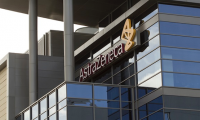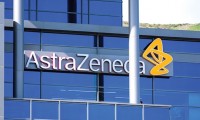-
Merck’s Keytruda nabs FDA nod in biliary tract cancer, catching up with AstraZeneca’s Imfinzi
- Source: drugdu
- 100
- November 3, 2023
-
AstraZeneca studies highlight burden of COVID-19 for immunocompromised
- Source: drugdu
- 190
- October 20, 2023
-
report
- Source: drugdu
- 185
- October 14, 2023
-
AstraZeneca’s Forxiga shows promise in paediatric type 2 diabetes trial
- Source: drugdu
- 100
- October 13, 2023
-
AstraZeneca’s Forxiga meets primary endpoint for T2D
- Source: drugdu
- 235
- October 7, 2023
-
AstraZeneca Signs AI-Powered Drug Discovery Pact with Verge
- Source: drugdu
- 194
- September 12, 2023
-
AstraZeneca Latest to Sue Biden Administration Over IRA’s Drug Price Negotiations
- Source: drugdu
- 107
- August 30, 2023
-
Chasing AstraZeneca and Pfizer, Johnson & Johnson snags FDA nod for prostate cancer combo Akeega
- Source: drugdu
- 118
- August 16, 2023
-
Eco-minded AstraZeneca doubles down on renewable energy push in Sweden
- Source: drugdu
- 113
- August 11, 2023
-
AstraZeneca/Sanofi’s RSV antibody receives FDA approval for use in infants
- Source: drugdu
- 121
- July 22, 2023
your submission has already been received.
OK
Subscribe
Please enter a valid Email address!
Submit
The most relevant industry news & insight will be sent to you every two weeks.













